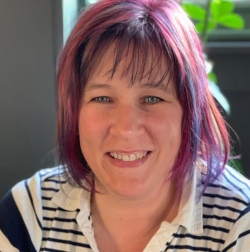
by Catherine Henry, Manager of the Money Talk Team.
This article was first published in the Herald on 12 August 2020.
A young mother was recently explaining to her Citizens Advice Bureau how she and her family had enjoyed a fairly comfortable living just a few months ago. Both she and her husband had decent jobs and were looking forward to taking their daughter on a cruise later this year. Then came coronavirus, lockdown, furloughs and redundancy.
Forced into an unfamiliar world of social security and foodbanks, she was bewildered at how quickly their situation has changed. “We used to get by OK,” she said. “Now all of a sudden, there’s too much month left at the end of the money.”
The case sticks in my mind because of that memorable phrase but in truth, the CAB network sees people like this every day. The vast majority of the cases we deal with involve money problems. That has always been so but the pandemic has certainly not eased the financial challenges Scottish households are facing.
And there is one particular group that has been increasingly seeking our help over lockdown: parents.
All families are feeling the strain to some extent but many were already struggling financially when the pandemic hit. Groups we are particularly concerned about include single parents, those caring for someone with a disability, households with a new baby, and larger families. Many households are trying to find ways to save money, but it’s easier said than done. When you’re a parent there are so many demands on your time that sorting out your finances can seem like a luxury you can barely afford.
But the thing is that most families, if they look into their money situation, really can make savings or find new sources of income. For a start, you can switch to a cheaper energy supplier. Or when was the last time you checked whether you were eligible for a reduction in your council tax? Perhaps most surprising of all, you may be entitled to social security, grants or tax credits you don’t know about. It’s amazing how often we find this is the case.
I know what you’re thinking: these things all sound fine and dandy but they also sound complicated and you don’t know how to go about them. Well, that’s where we come in.
The Scottish CAB network runs a free service called the Money Talk Team, which will help you check all of these things and more to maximise your income. If we find that you are eligible for grants or social security, we can also help you make your application.
Does it work? Put it this way, in the first 18 months of the Money Talk Team, around 20,000 people talked to us. And in almost half of those cases we found them some additional income – the average amount being over £1,800.
And even where we didn’t identify any additional cash, feedback from our clients is that they get a lot of peace of mind just from discussing their money situation with a sympathetic expert.
So if there’s too much month left at the end of your money, why not let the Money Talk Team see if we can help? You can contact us by phone, online or in person, and it’s just a fairly short conversation, so what have you got to lose?
And remember, this is not charity; we’re only talking about putting you in touch with money that you are entitled to. And it’s all about helping you look after your kids, putting shoes on their feet, food in their belly and toys in their hands.
Anyway. This is supposed to be an “opinion piece”, not just an advert. Well you’ve had the advert, now for the “opinion-y” bit.
It shouldn’t be so difficult for people to access money they are entitled to. I don’t want to talk myself out of a job here and realistically there will always be a need for projects like the Money Talk Team to link people with the support they need. But too many people feel an unnecessary stigma about asking for help which is theirs by right. That’s on us as a society and we need to change the way we look at social security and other support: getting back to the first principles and perhaps even seeing it as a positive thing.
After all, like the woman quoted above, most of us are just a few steps away from needing a bit of help. So it’s in all our interests to make sure that such support is easily available.
Surely if the last five months have taught us anything, it’s that.